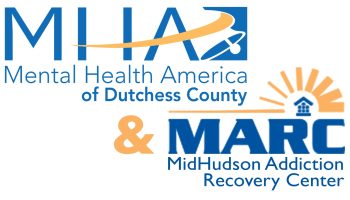Richmond Hill Medically Assisted Treatment and Recovery Center
About Richmond Hill Medically Assisted Treatment and Recovery Center
Richmond Hill Medically Assisted Treatment and Recovery Center is a co-ed residential addiction treatment center located in Richmond Hill in the borough of Queens, New York. The center has 104 beds. They’re run by Samaritan Daytop Village, a network of behavioral health treatment and social services centers that provide integrated, compassionate care.
You can find their Ed Thompson Veterans Program across the street.
Thorough Care in a Five Phases
Their treatment process consists of five phases. The first, admissions, is all about finding the right treatment center and program for your needs.
Next is the stabilization phase, during which they offer medically supervised detox services and medication assisted treatment (MAT) to help with withdrawals and cravings. If you have a dual diagnosis, they might also prescribe medications to help your mental health.
The rehabilitation phase involves leaning into your strengths to create an individualized treatment plan with goals and interventions. You’ll dive into the recovery community and begin rebuilding your life.
The final two phases are reintegration and recovery. Reintegration has a huge social component, so you’ll spend a lot of this time connecting with your local community and mending family relationships. The recovery phase includes post-treatment support and alumni groups. You can also train to become a recovery coach and help others find joy in sobriety.
Additional Services for Whole-Person Recovery
Something neat about the Samaritan approach is that they help you find healing in all parts of your life. They’ve several services that can enhance your treatment process by building your spiritual health, social connections, and creativity.
Creative art therapy gives you a space to explore your emotions and experiences with curiosity. Spirituality groups and yoga classes let you lean into your spirituality and incorporate it into your general lifestyle. There are also a few family-focused services, designed to support your family members while you’re in treatment and to help you build stronger relationships with them.
| Levels of Care | Detox Service Setting | Programs | Payment Options |
|---|---|---|---|
|
Inpatient and residential programs provide round-the-clock medical and emotional support as you live at the treatment facility. This level of care may be recommended if you have severe addictions or mental health conditions since it removes outside distractions and allows you to focus solely on therapy. |
In outpatient therapy, you’ll attend therapy sessions several times each week while living at home. This is ideal if you have a strong support system and a lower risk of relapse. Outpatient treatment offers flexibility to maintain work, school or family obligations. |
||
|
Inpatient detox occurs in a dedicated treatment facility. You’ll live there around the clock and receive intensive medical support and supervision to help manage your withdrawal symptoms. It is suitable for individuals with moderate to severe addictions as it ensures a stable detox environment. |
Outpatient detox gives you access to medically supervised withdrawal services while still allowing you to live at home. You’ll attend a clinic for treatment and monitoring. This flexible option is suitable for those with mild to moderate withdrawal symptoms who have strong support systems. |
||
|
Alcohol detox programs offer medical support to help individuals withdraw safely from alcohol. Your care team may use medications to ease your symptoms and provide medical monitoring to address complications. |
Drug detox programs support individuals who are withdrawing from addictive substances like cocaine and heroin. Medical support helps you manage symptoms in a controlled and safe environment so you can achieve initial sobriety. |
||
|
Private Insurance
|
Self Pay
|
Levels of Care
Inpatient and residential programs provide round-the-clock medical and emotional support as you live at the treatment facility. This level of care may be recommended if you have severe addictions or mental health conditions since it removes outside distractions and allows you to focus solely on therapy.
In outpatient therapy, you’ll attend therapy sessions several times each week while living at home. This is ideal if you have a strong support system and a lower risk of relapse. Outpatient treatment offers flexibility to maintain work, school or family obligations.
Detox Service Setting
Inpatient detox occurs in a dedicated treatment facility. You’ll live there around the clock and receive intensive medical support and supervision to help manage your withdrawal symptoms. It is suitable for individuals with moderate to severe addictions as it ensures a stable detox environment.
Outpatient detox gives you access to medically supervised withdrawal services while still allowing you to live at home. You’ll attend a clinic for treatment and monitoring. This flexible option is suitable for those with mild to moderate withdrawal symptoms who have strong support systems.
Programs
Alcohol detox programs offer medical support to help individuals withdraw safely from alcohol. Your care team may use medications to ease your symptoms and provide medical monitoring to address complications.
Drug detox programs support individuals who are withdrawing from addictive substances like cocaine and heroin. Medical support helps you manage symptoms in a controlled and safe environment so you can achieve initial sobriety.
Contact

Hayley’s love of writing started with exploring the wondrous world of Narnia and slowly grew into a desire to help others through practical, accessible writing. She writes about detox to bridge the gap between the lost, who aren’t sure where to turn, and the people willing and able to help them.

Peter W.Y. Lee is a historian with a focus in American Cold War culture. He has examined how popular culture has served as a coping mechanism for the challenges and changes impacting American society throughout the twentieth century.




